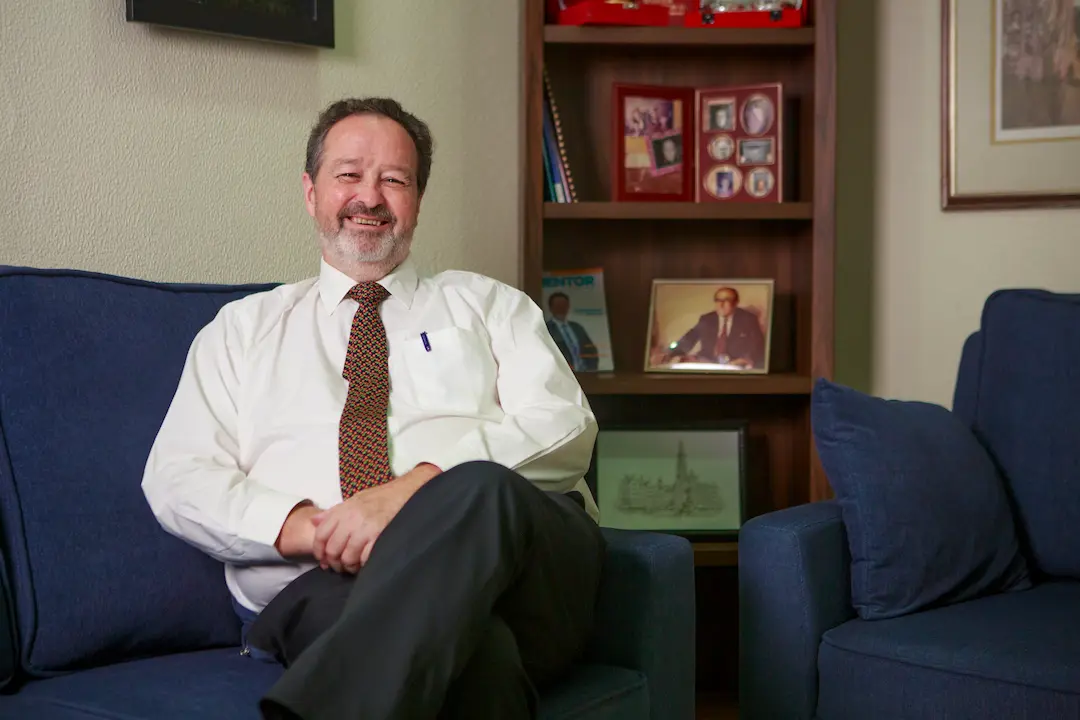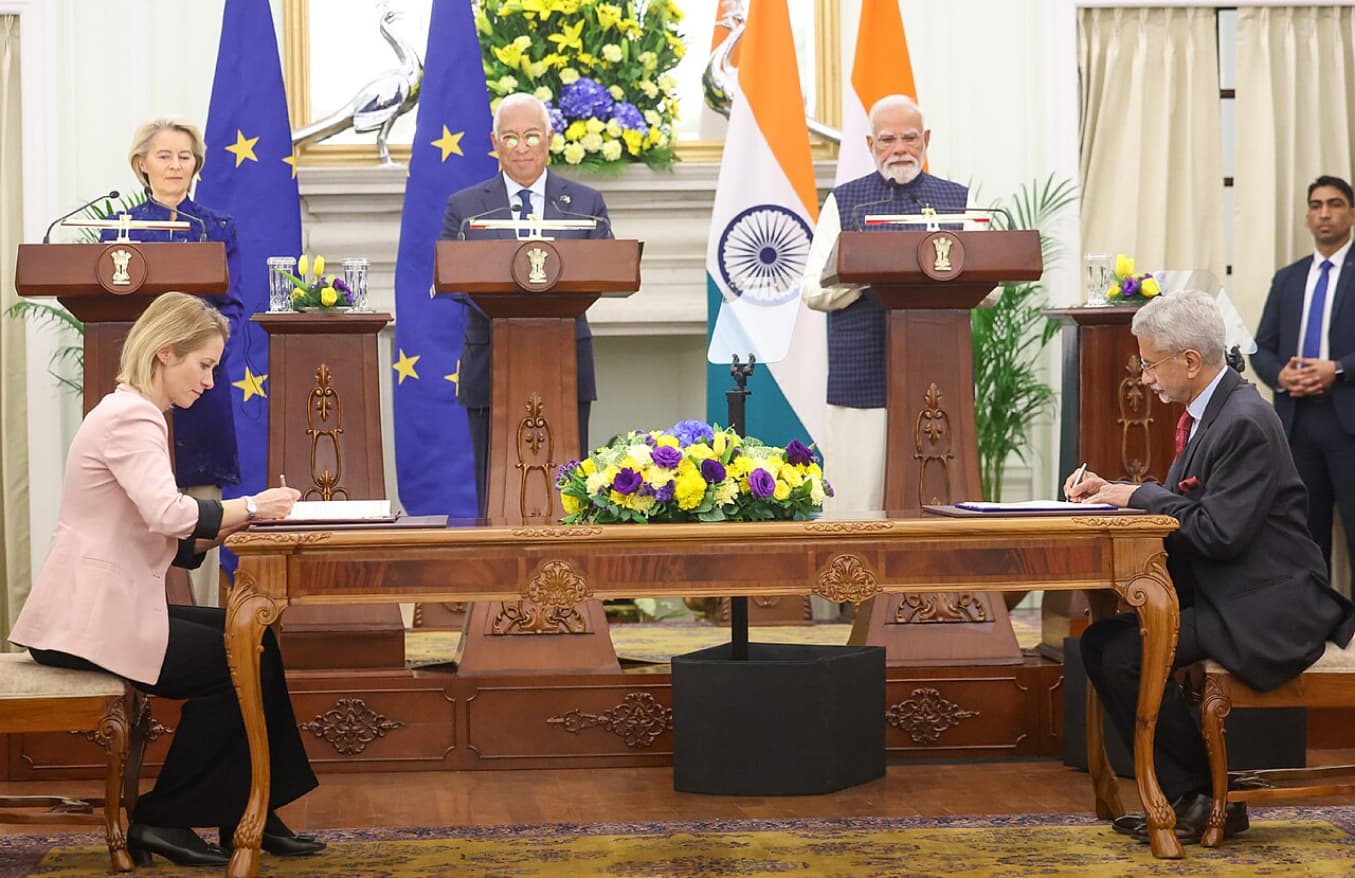Dr Geoffrey Fisher: Reflections on 40 Years in Education
In the ever-evolving world of education, few leaders have left a mark as indelible as Dr. Geoffrey Fisher, Head of School at B.D. Somani International School. With a career spanning over 40 years, Dr. Fisher’s journey is a testament to the transformative power of visionary leadership and the enduring value of human connection in education. From boarding schools in his early days to spearheading international curricula and fostering innovation across diverse educational landscapes, his legacy is one of growth, adaptability, and unwavering dedication.
“At its core, education is about people,” Dr. Fisher shares. “It’s about fostering trust and building relationships—between teachers and students, administrators and staff, and schools and their communities.” This philosophy has been the cornerstone of his leadership, guiding his efforts to create environments where learning flourishes and individuals thrive.
Shaping a Philosophy of Leadership
Dr. Fisher credits three pivotal phases of his career for shaping his approach to leadership: his early experiences in boarding schools, the transition to international education, and his immersion in the Indian educational system. These experiences deepened his understanding of the complexities of education and solidified his belief in the power of trust and relationships.
Through his doctorate studies and practical experience, Dr. Fisher developed a leadership philosophy centered on empowering individuals. “When you focus on trust and relationships, you empower people to grow,” he explains. “And when that happens, schools thrive.”
Adapting to a Changing Landscape
Over the past four decades, the field of education has undergone seismic shifts. Dr. Fisher identifies three key changes: the rise of technology, the increasing privatization of education, and a growing focus on wellness.
Technology, he believes, has the potential to transform education but requires thoughtful integration. For instance, while he supports banning mobile phones in classrooms to minimize distractions, he also champions their use as learning tools outside school. Wellness, too, has taken center stage in his approach. “A good school doesn’t just prepare students for exams; it nurtures their emotional, intellectual, and physical well-being,” he says.
Transforming Schools: A Legacy of Growth
Under Dr. Fisher’s leadership, schools have undergone transformative growth. At The Kodaikanal International School, he spearheaded the introduction of the International Baccalaureate Middle Years Programme (IB MYP) and Primary Years Programme (PYP), creating a cohesive curriculum framework. At the Aga Khan Academy, he doubled enrolment, optimized facilities, and strengthened financial stability.
But for Dr. Fisher, transformation goes beyond numbers and programs. “It’s about fostering leadership, building community, and improving teaching. No school is perfect, but every school can improve,” he reflects. His ability to identify a school’s unique needs and implement tailored solutions has been a hallmark of his success.
Innovation Meets Tradition
One of the defining features of Dr. Fisher’s leadership is his ability to balance innovation and tradition. While he embraces technological advancements like AI, he emphasizes that they should not overshadow the importance of human connection. “Technology is crucial, but it’s a tool—not a replacement for relationships or critical thinking,” he asserts.
Dr. Fisher’s nuanced approach to teaching methodologies ensures that traditional methods remain integral for subjects like chemistry and mathematics, while experiential learning is prioritized in areas like literature and design. “The balance lies in knowing when to innovate and when to rely on proven methods,” he says.
Empowering Teachers
Recognizing that teachers are at the heart of education, Dr. Fisher has always prioritized their professional growth. “Teaching today is far more complex than it used to be,” he notes. Providing teachers with training, mentorship, and the freedom to adapt ensures that they are well-equipped to navigate the challenges of modern classrooms.
His focus has always been on integrating technology thoughtfully, enhancing rather than overshadowing traditional teaching methods. “A teacher’s most important tool is their relationship with their students,” Dr. Fisher emphasizes.
The Power of Relationships
When reflecting on his career, Dr. Fisher cites relationships as his greatest source of pride. “I became a teacher because I enjoy working with young people—watching them grow and become more complete versions of themselves,” he shares.
Whether it’s a former student reaching out on LinkedIn or asking him to be a godparent, these enduring connections are a testament to the trust and impact he has cultivated over the years.
Looking Ahead: A New Role
As Dr. Fisher transitions into an advisory role with Reliance, his vision for education remains as clear as ever. Though he is unable to delve into specifics, he explains that his focus will be on blending infrastructure with intangible elements like trust, culture, and relationships.
“It’s about creating spaces where students and teachers can thrive,” he says. “Building schools that prepare students for the future while honoring the human side of education.”
Final Thoughts
Dr. Fisher’s journey exemplifies the power of leadership rooted in empathy, adaptability, and vision. “Education is about preparing students for the world they’ll inherit,” he says. “But it’s also about honoring the relationships and experiences that make learning meaningful.” As Dr. Fisher continues to inspire future generations through his advisory roles, his legacy serves as a reminder of the profound impact that thoughtful, compassionate leadership can have on education.
#Dr.Fisher #conglomeratemagazine






